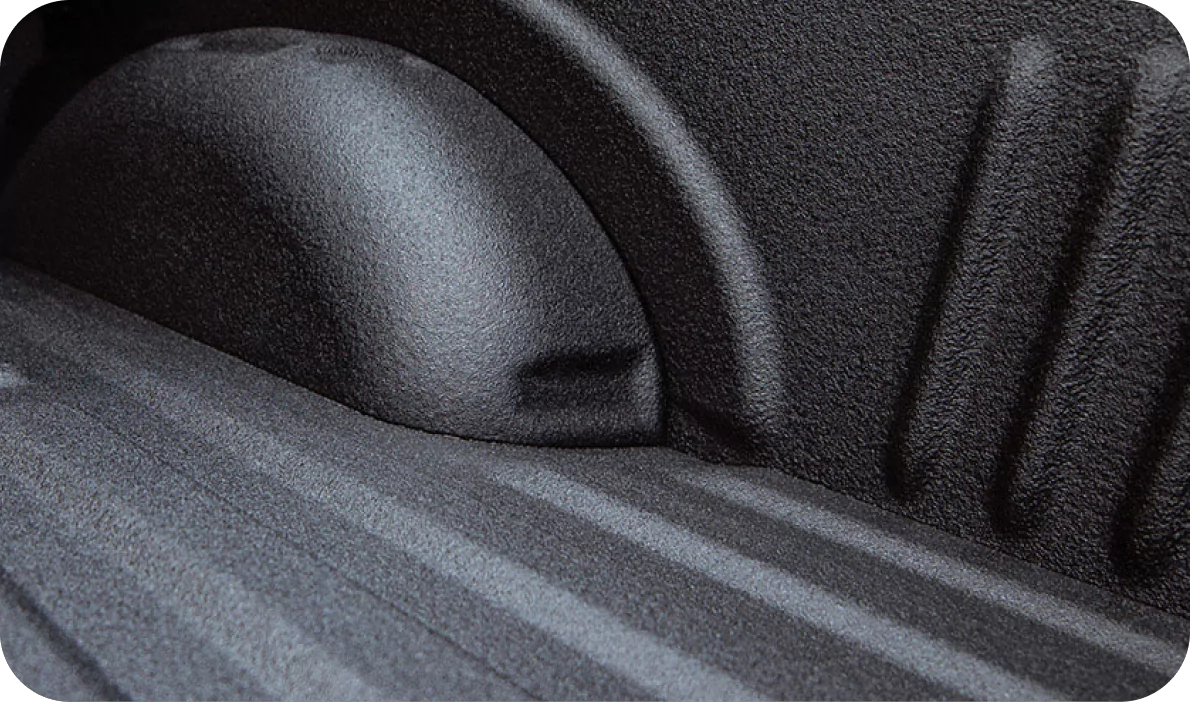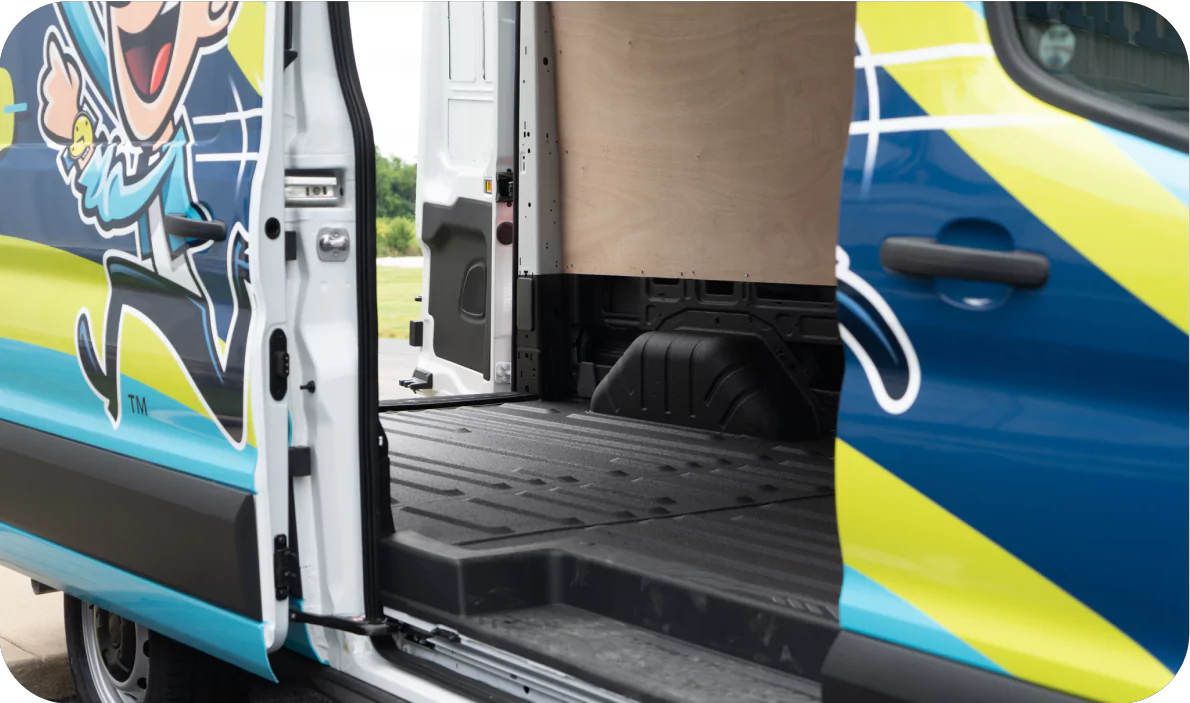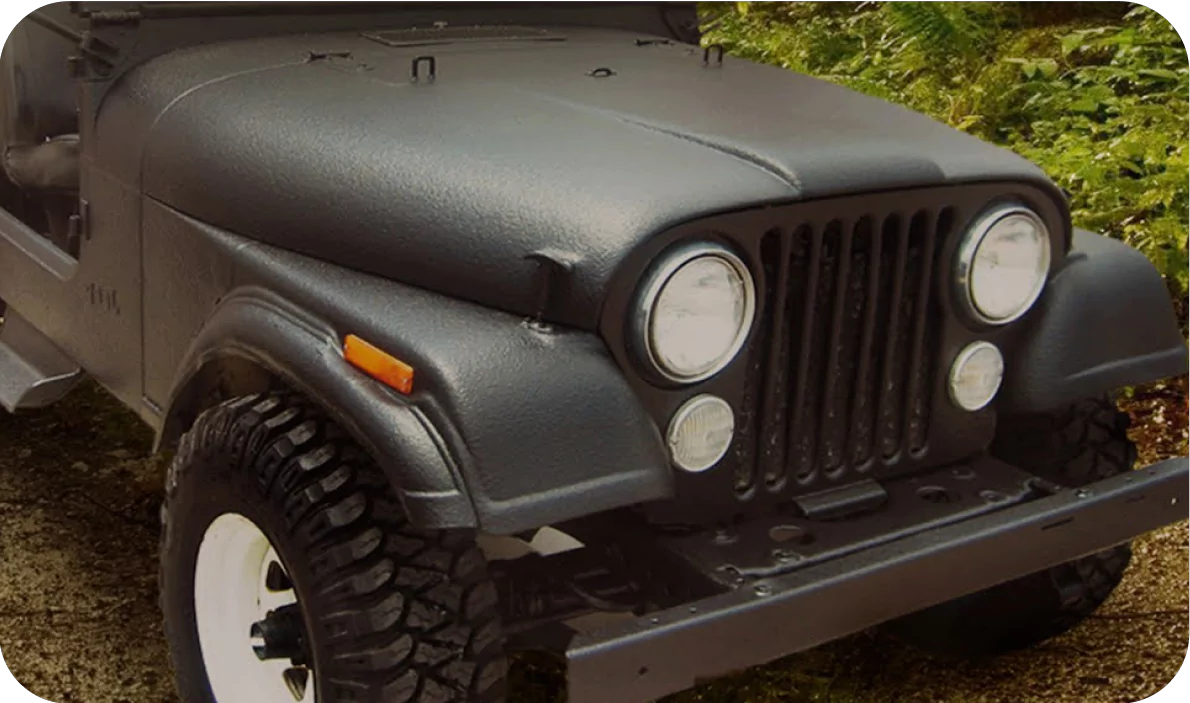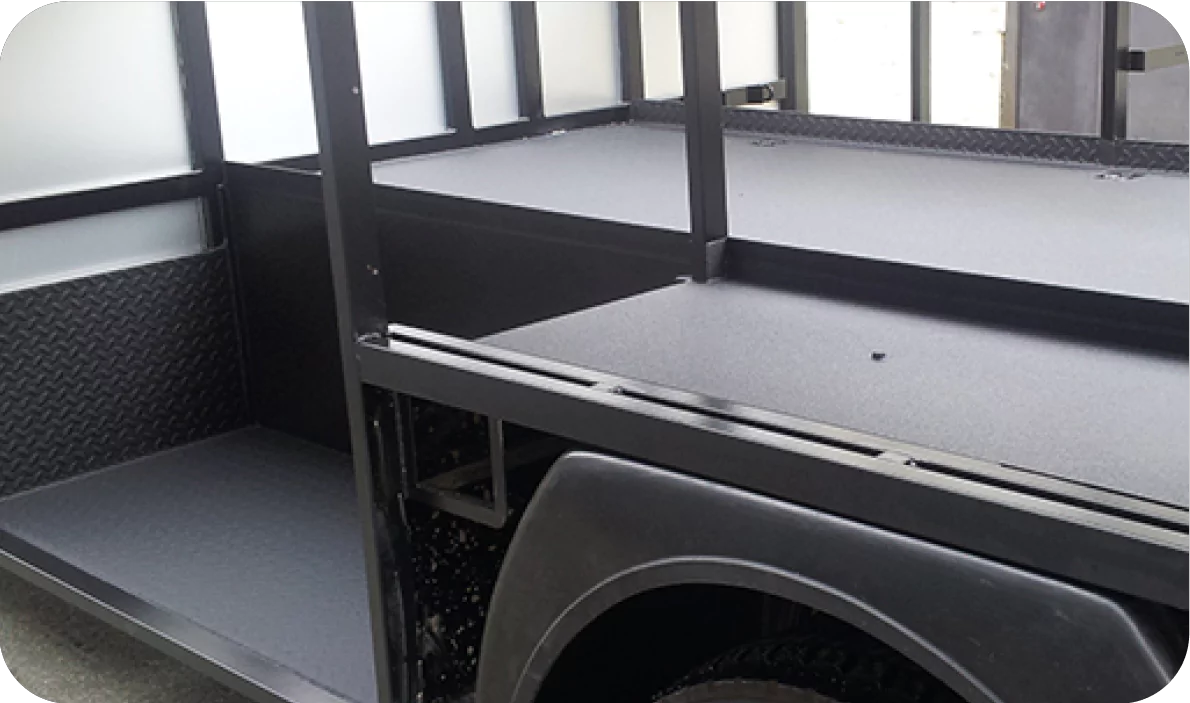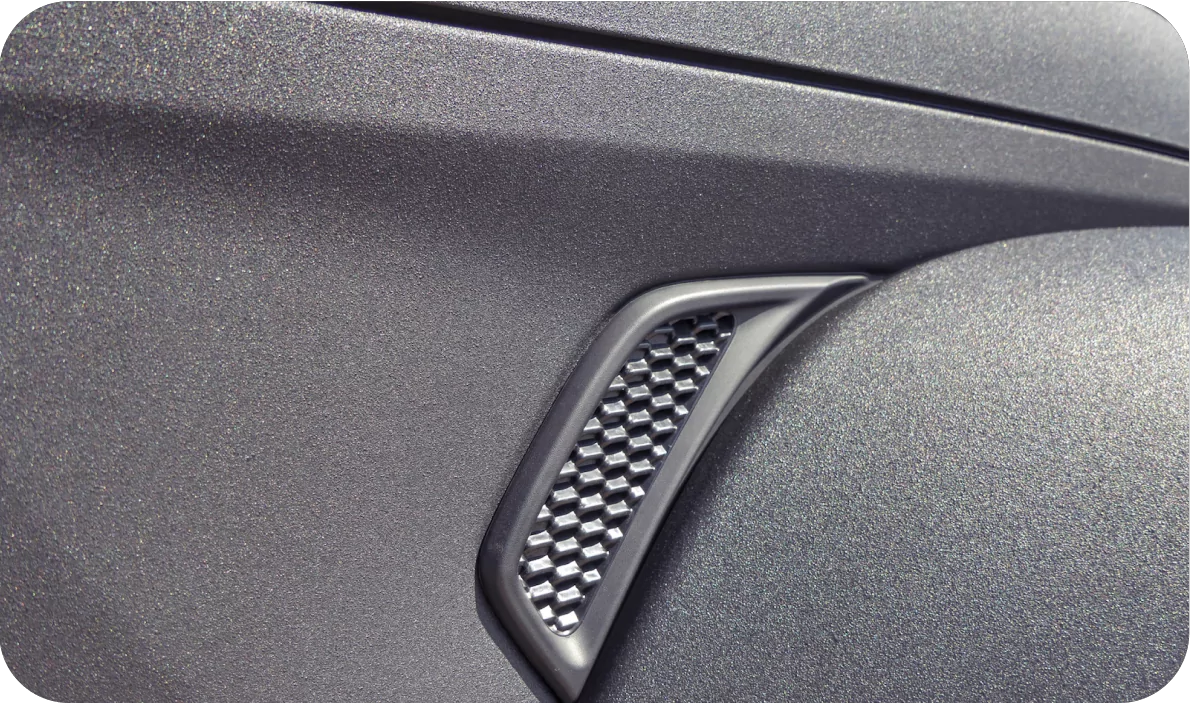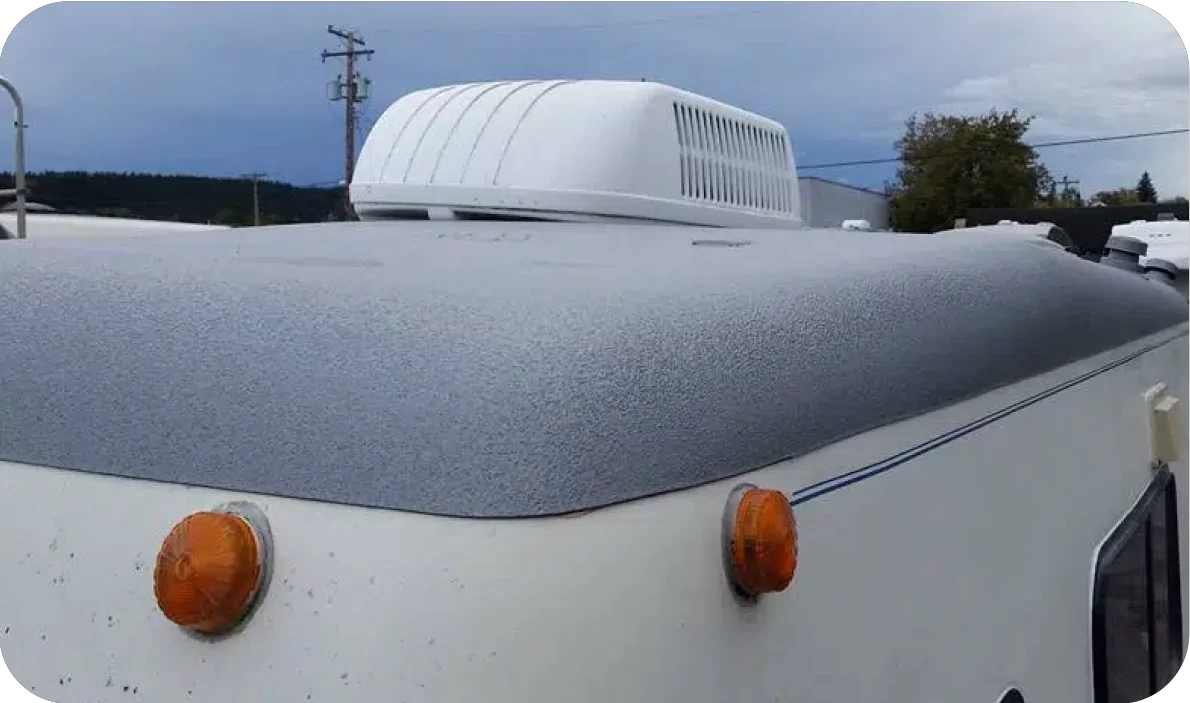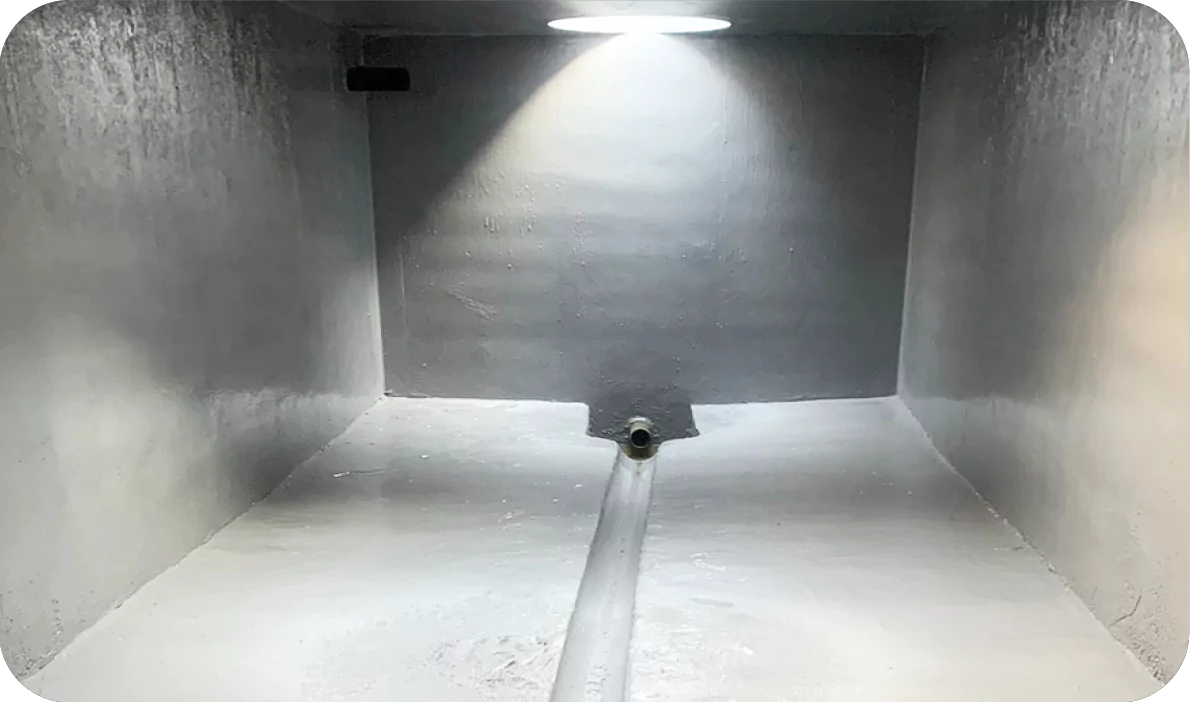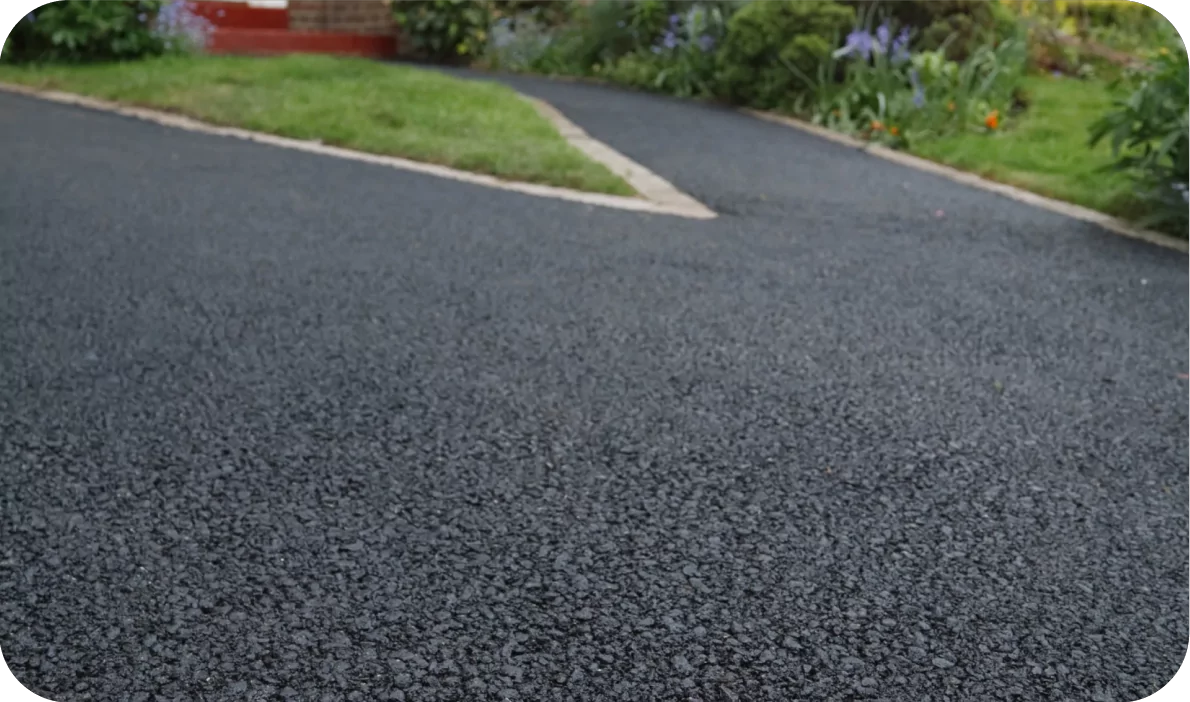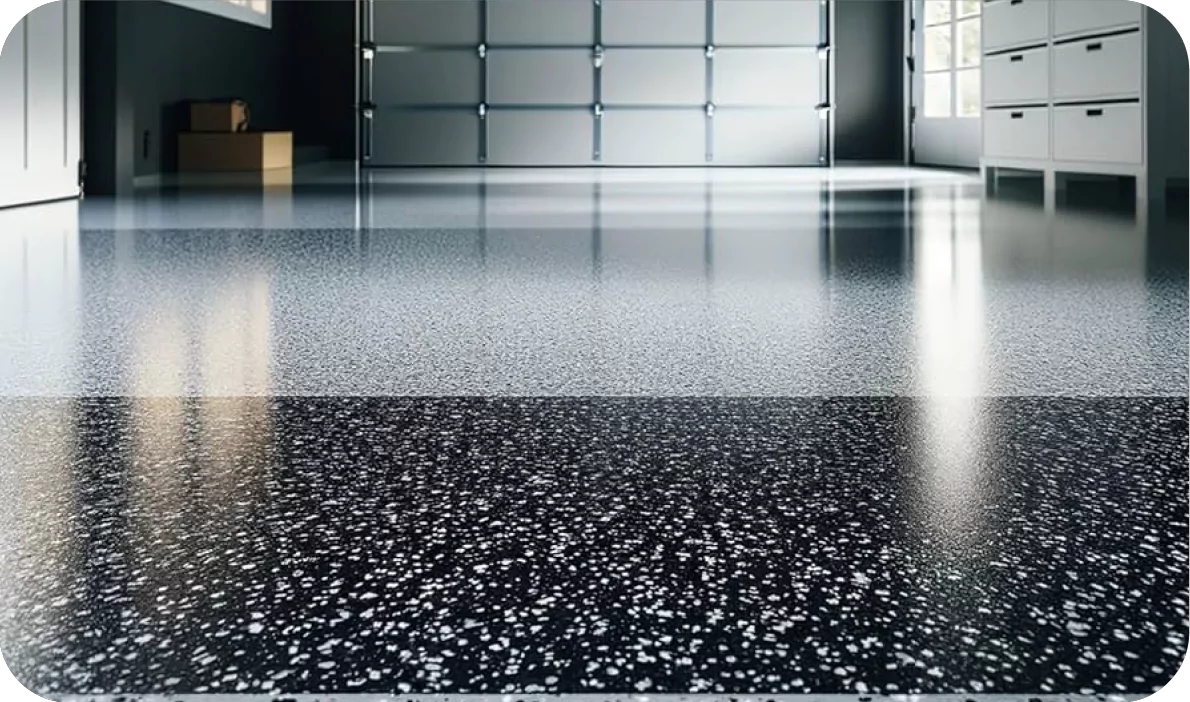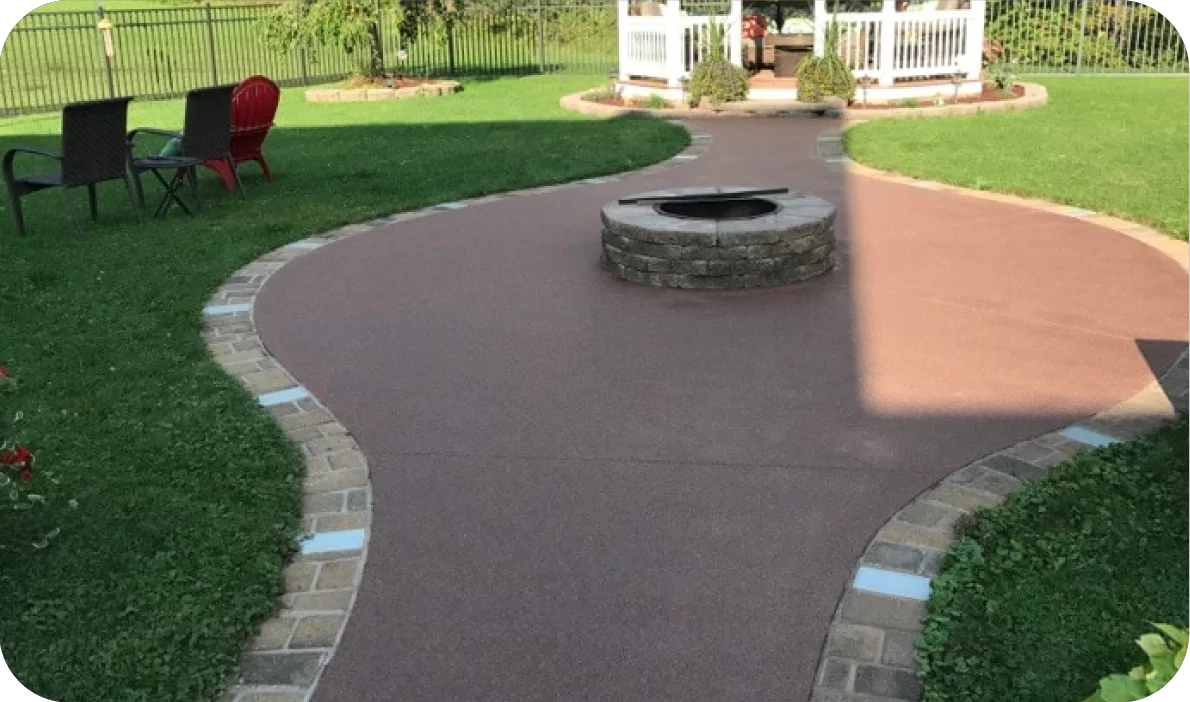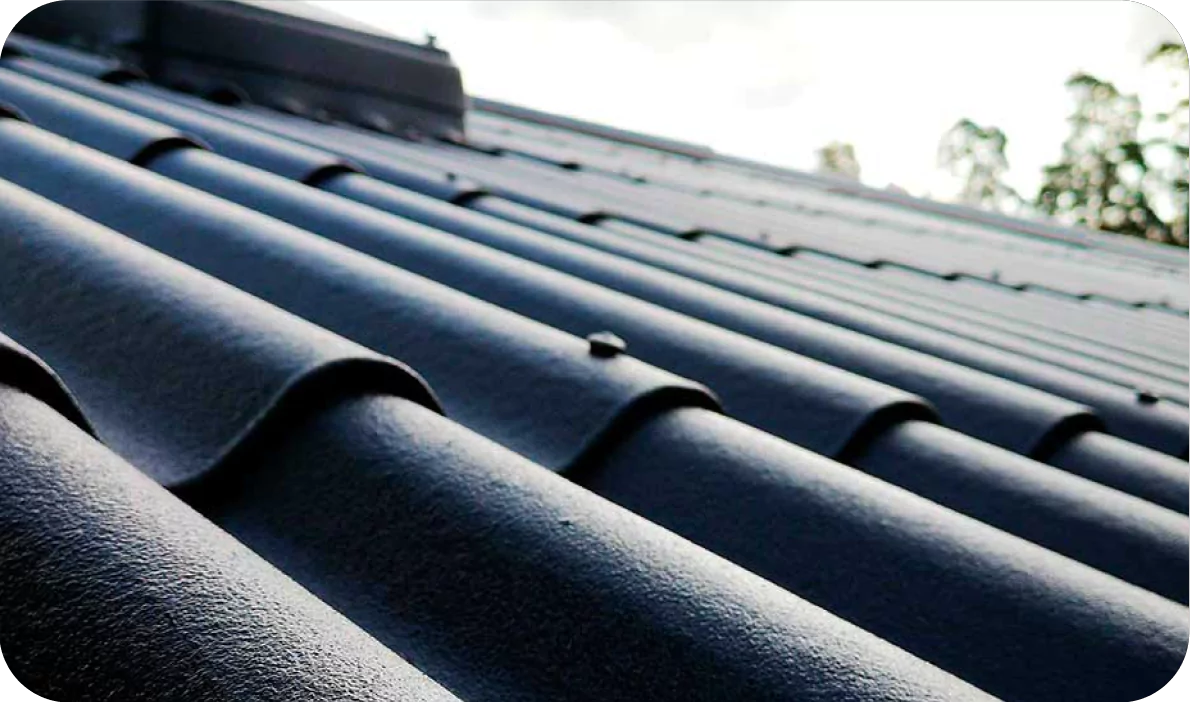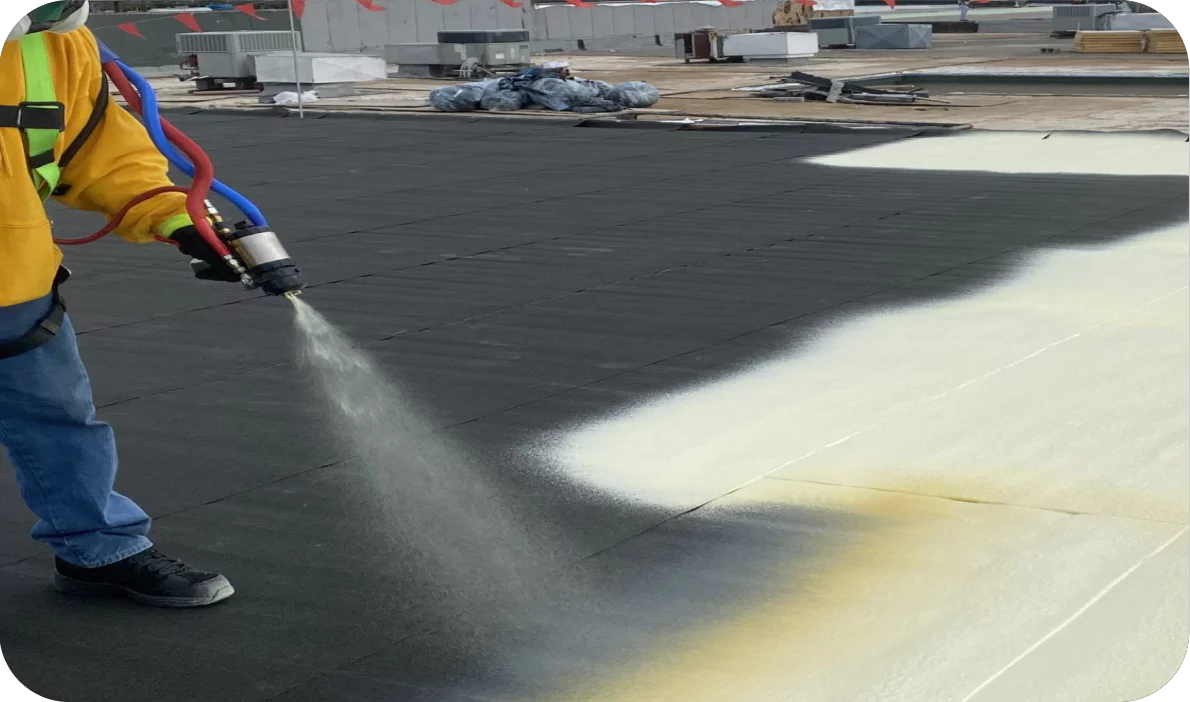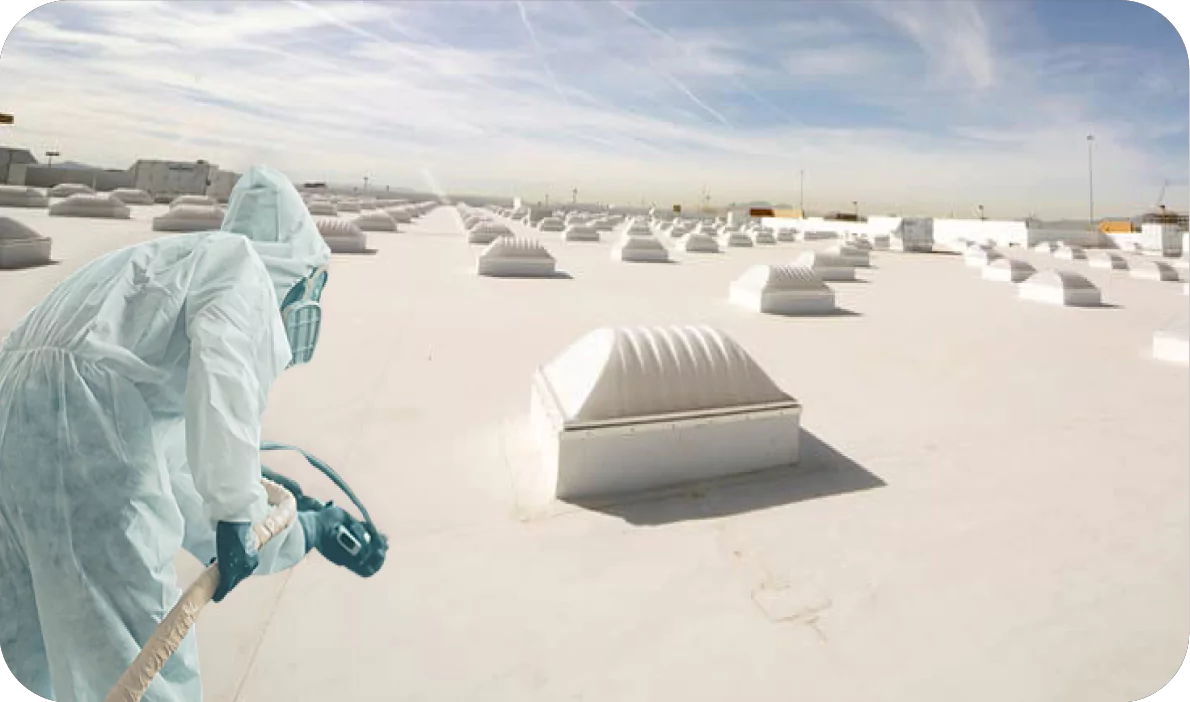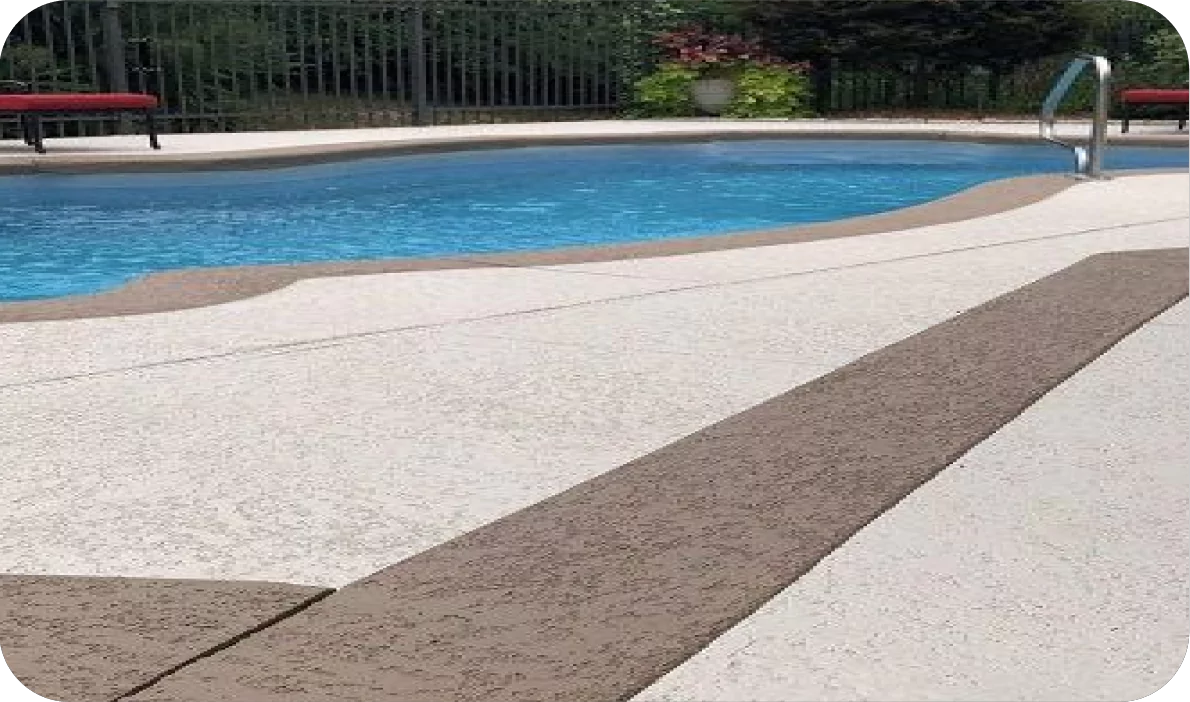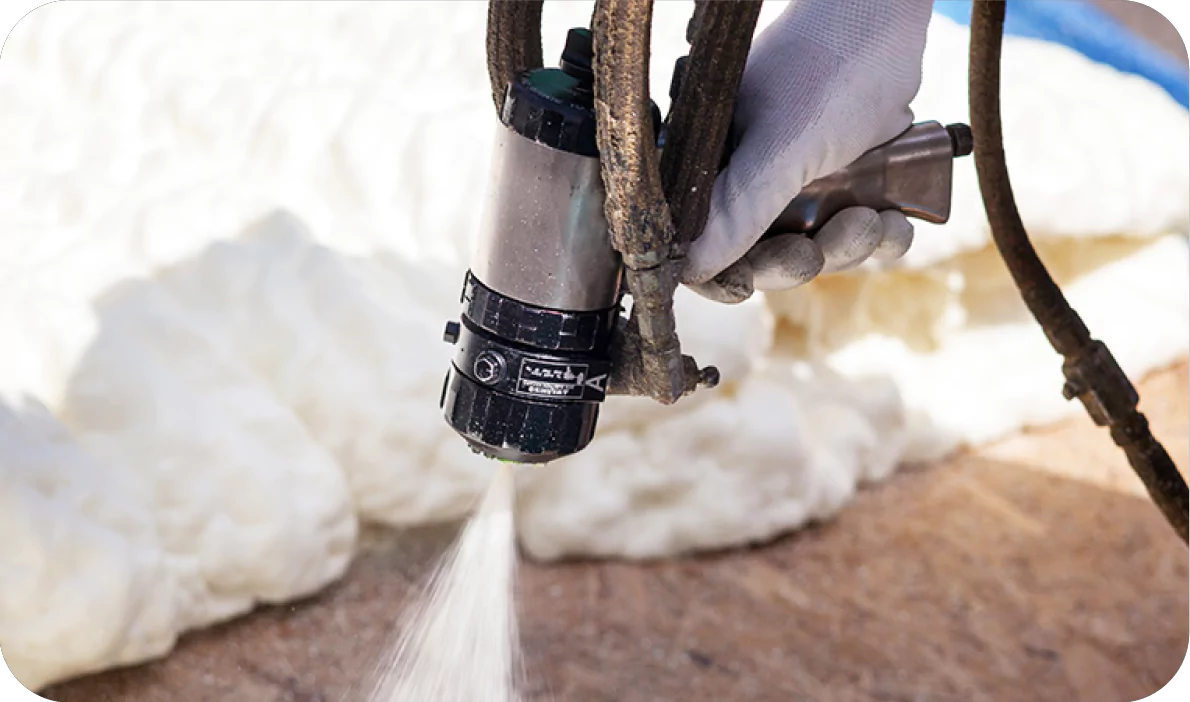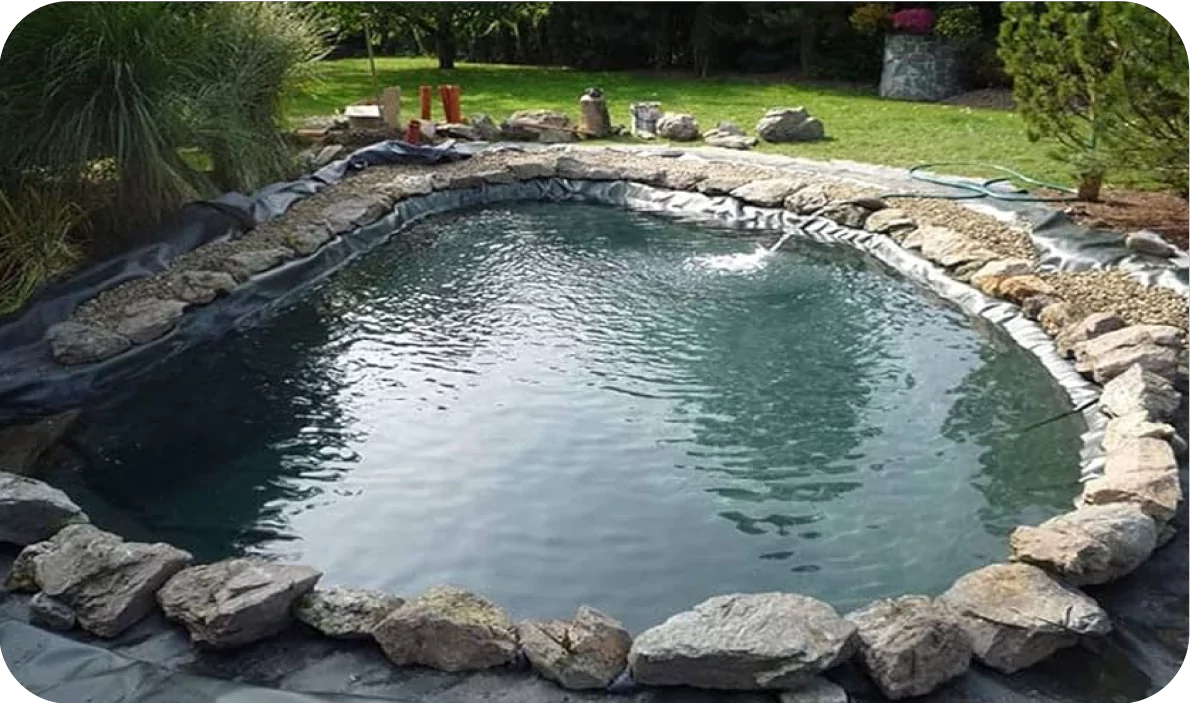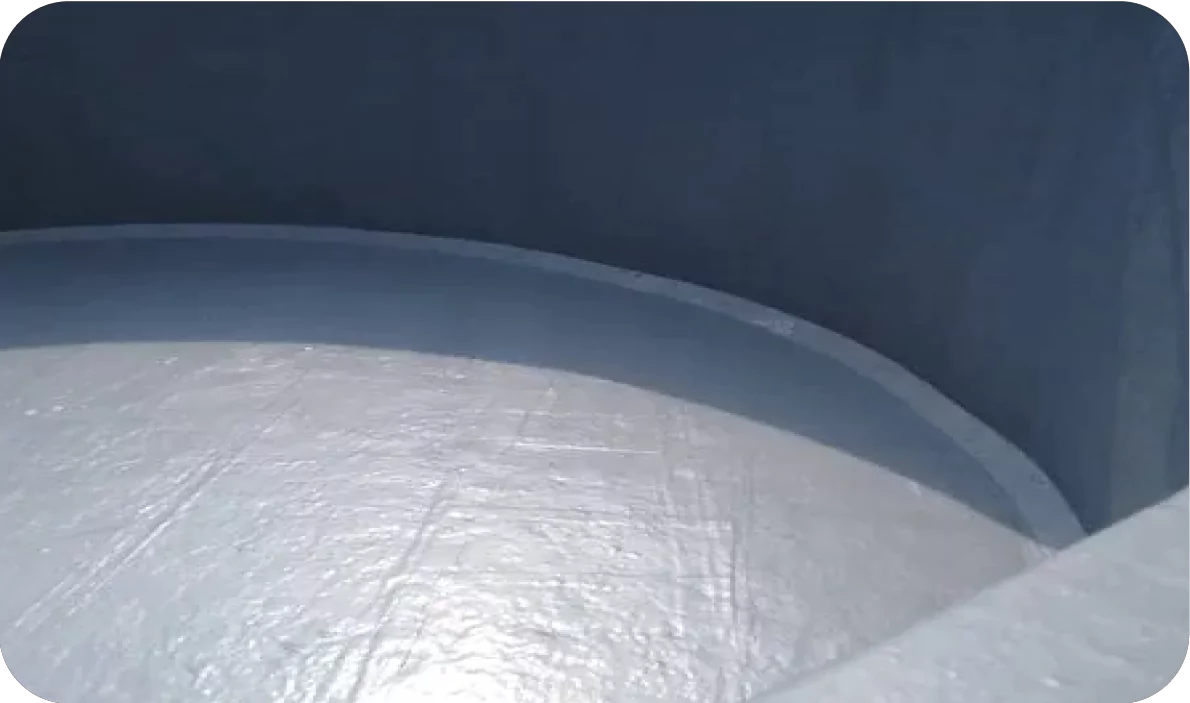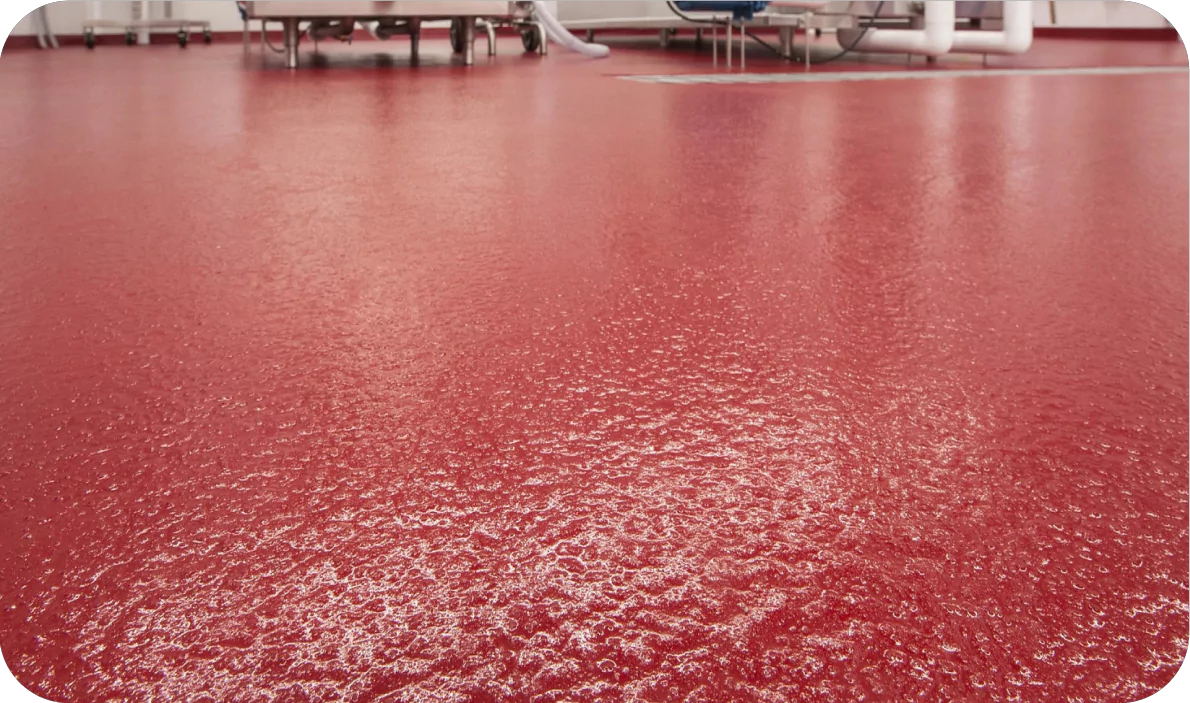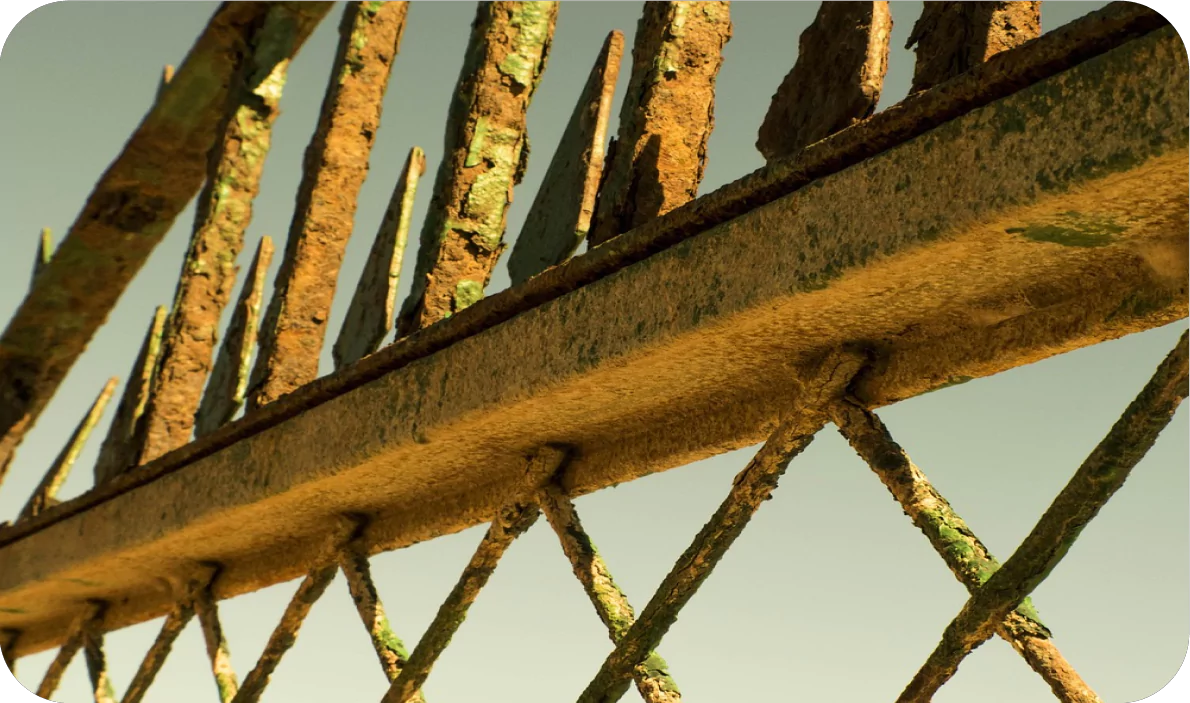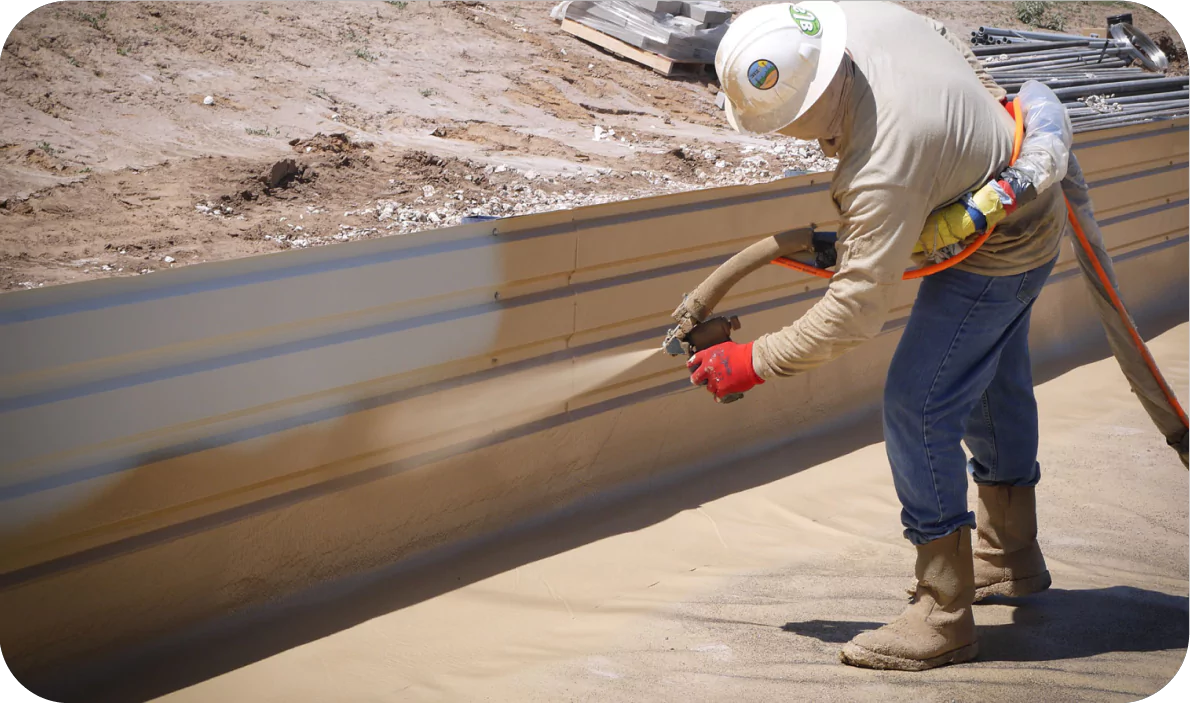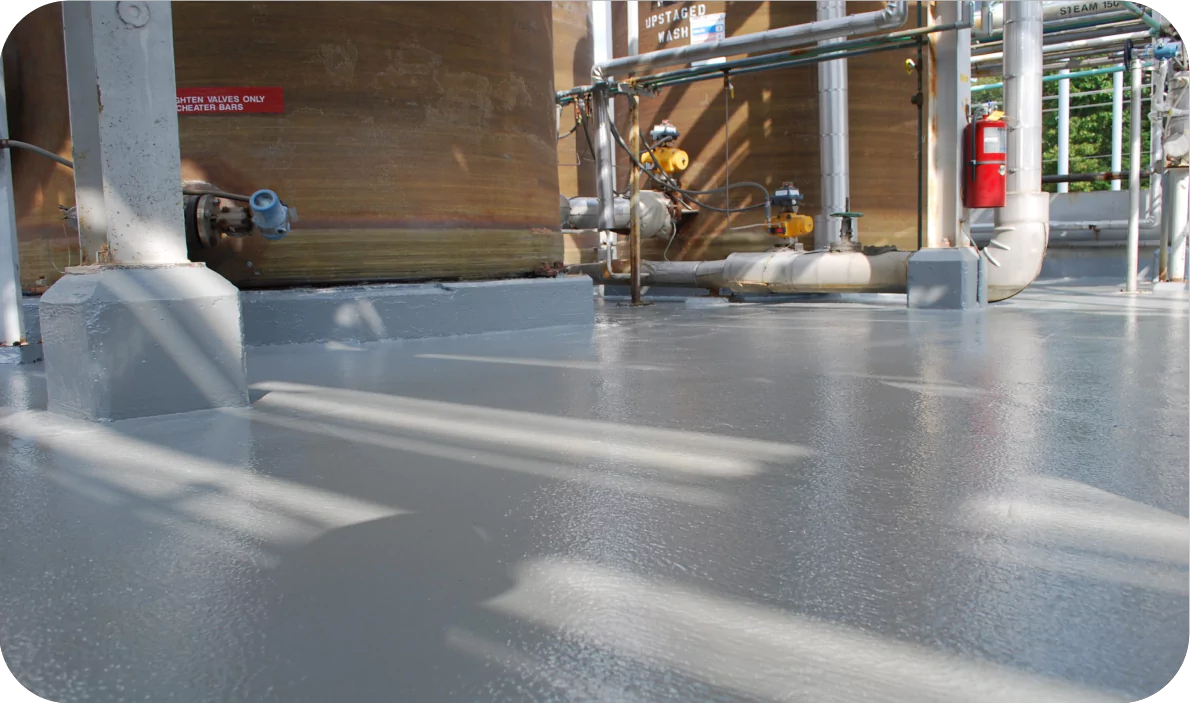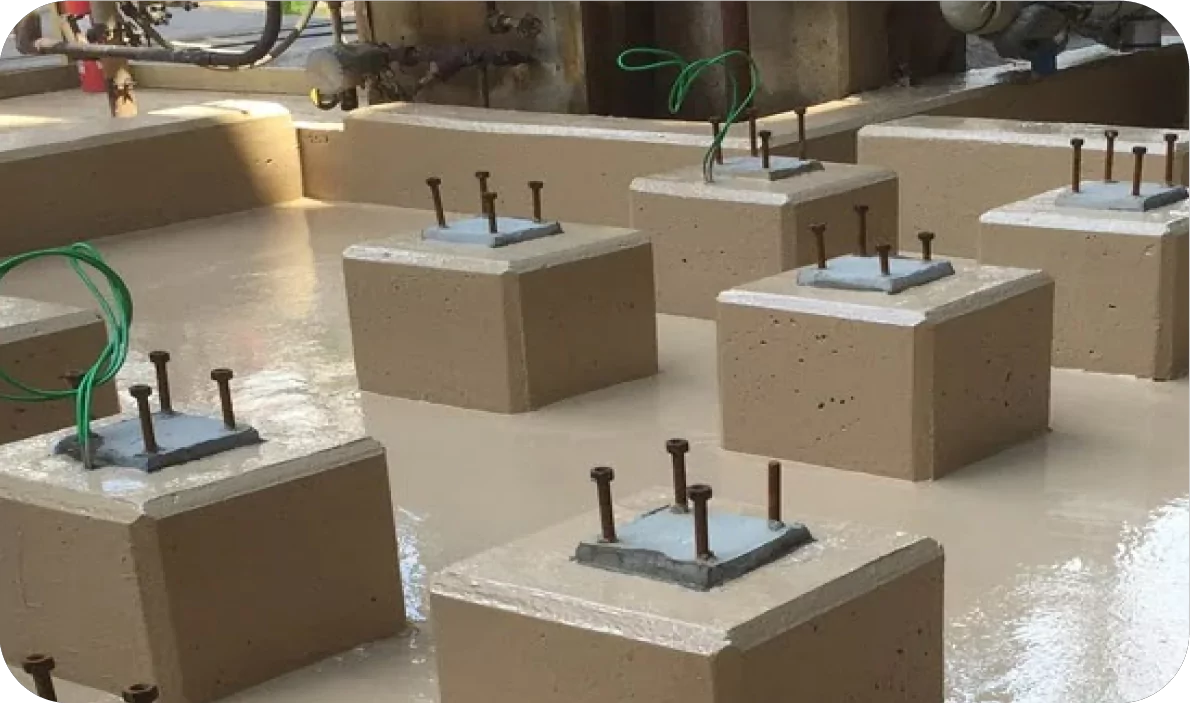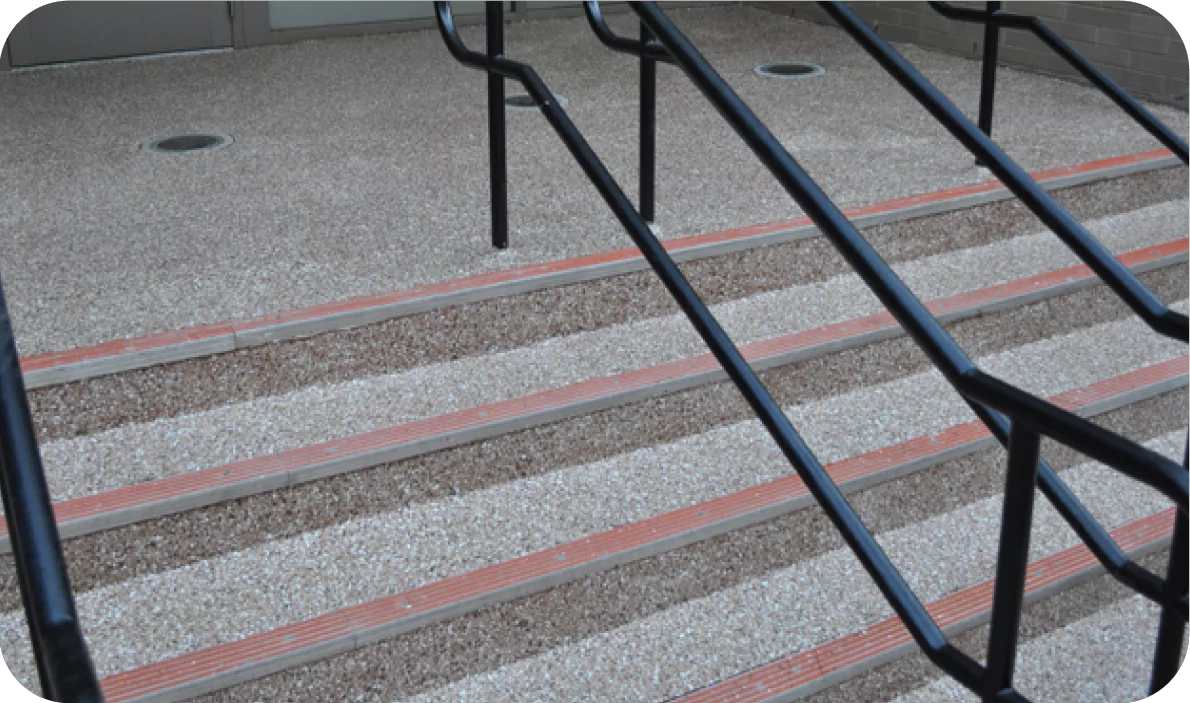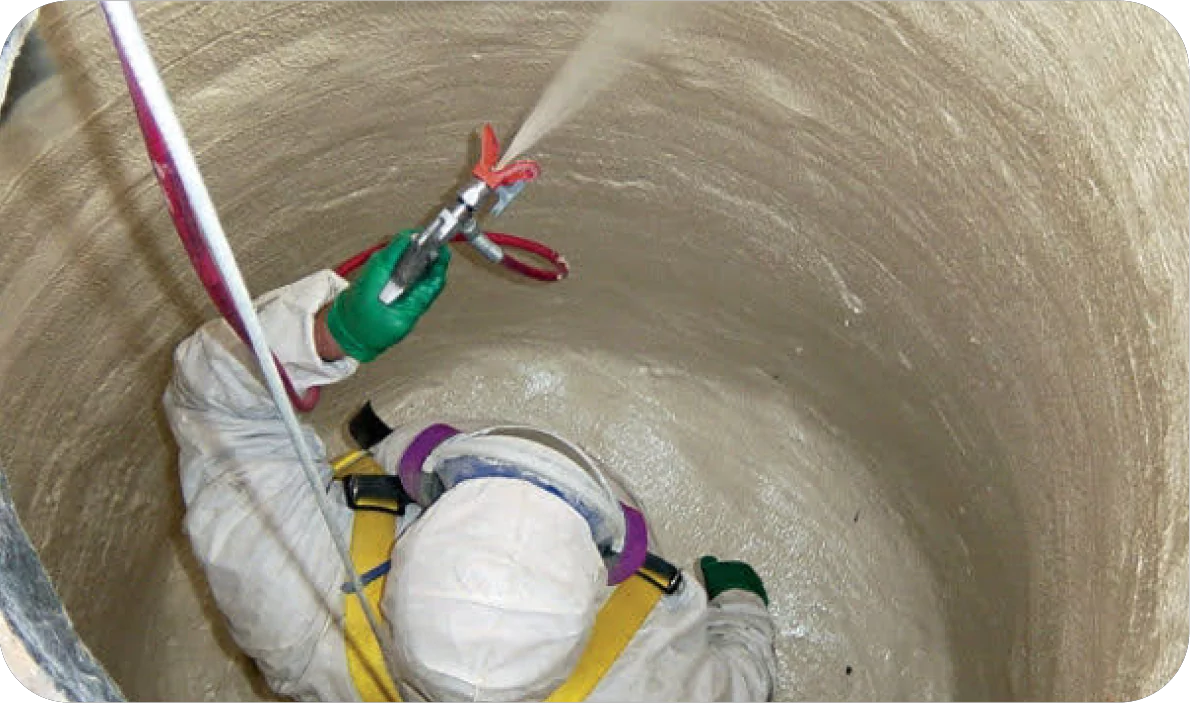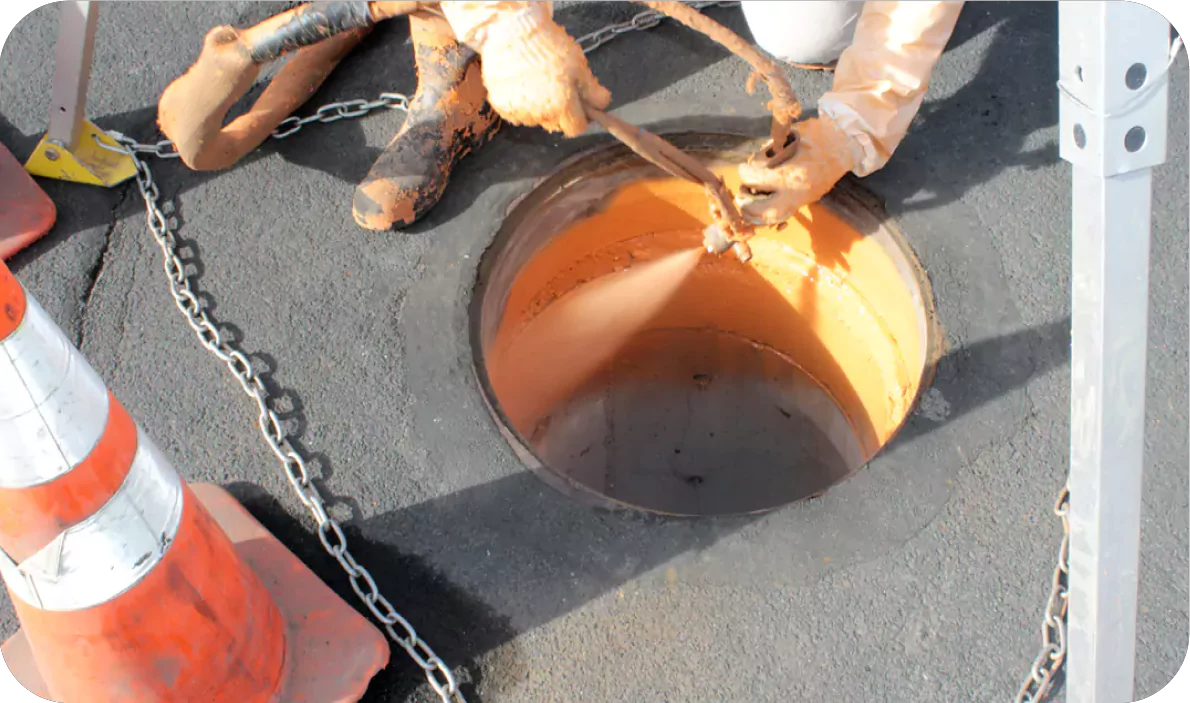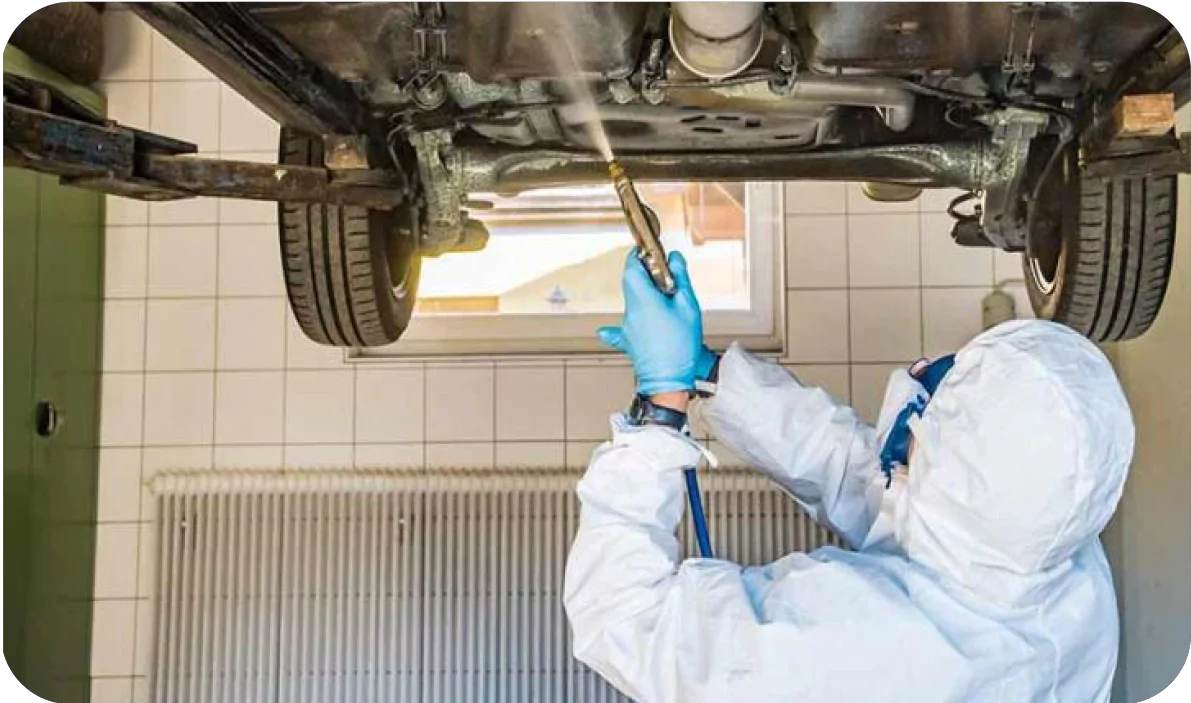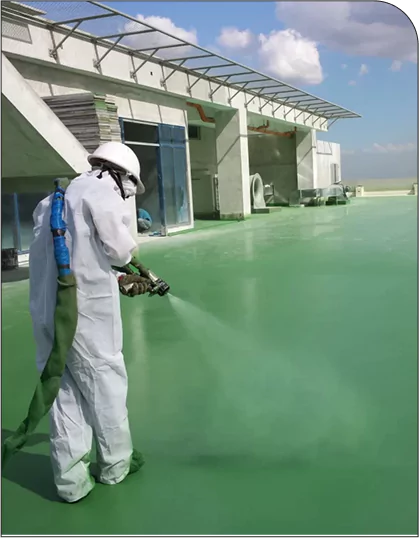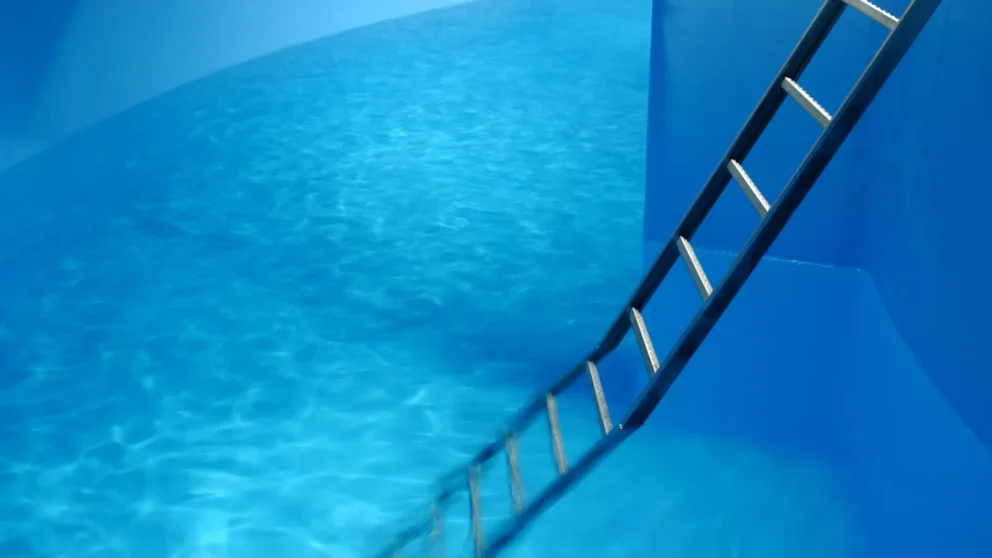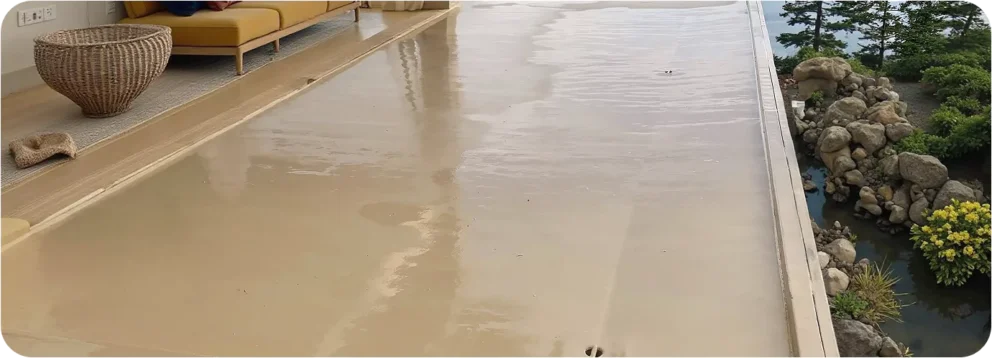POLYUREA HOUSEBOAT
ROOF COATINGS
All-Purpose Roofing Protection for Safer, More Functional, and Longer-Lasting Aquatic Shelters
BETTER BARRIERS BETWEEN SEA AND SKY
Protecting the roof of any structure can be a formidable endeavor, but for houseboats, the difficulty is turned up to 11. Houseboat roofs struggle with all of the same challenges as their landlubbing counterparts, but with the added difficulty of greater exposure to the elements and everything else that comes with life on the water. For many houseboats, the damage is already done, and only extensive repairs or outright replacement can see them return to the glory of their maiden voyage. New houseboats are more fortunate, but their roofs are all but guaranteed to end up in the same state if left unprotected between the dealership floor and the launch site. For all houseboats, new or old, large or small, out on the lake or nestled in a coastal harbor, it’s paramount to protect their roofs and fight the good fight against water intrusion, UV degradation, storm damage, corrosion, and anything else that threatens your good time, not to mention your safety. For this, there’s no better choice than ArmorThane’s polyurea houseboat roof coatings. They’re a quick, cost-effective, and reliable means of shielding your aquatic shelter against all of the major sources of damage simultaneously.
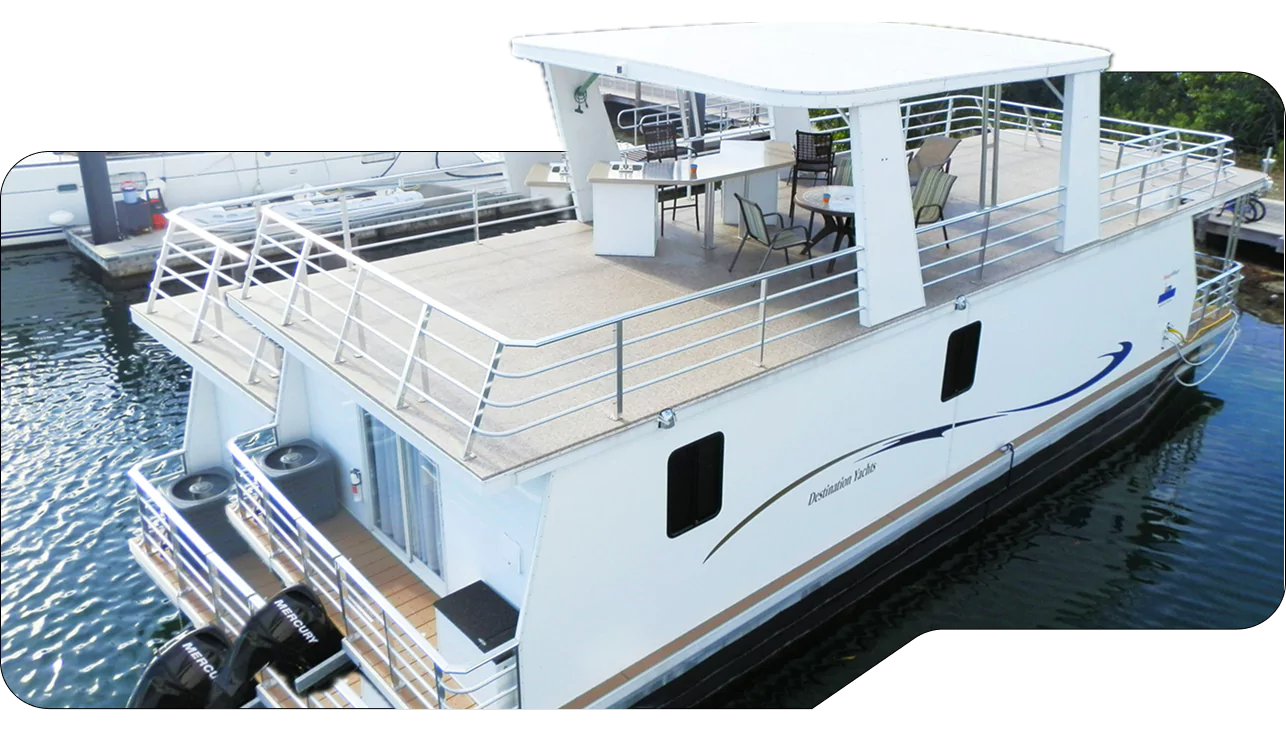
WHAT MAKES POLYUREA THE BEST CHOICE
FOR HOUSEBOAT ROOF REPAIR AND PROTECTION?
WHAT MAKES POLYUREA
THE BEST CHOICE
FOR HOUSEBOAT ROOF
REPAIR AND PROTECTION?
Houseboats vary every bit as much as our regular old homes here on land, including in terms of their size, shape, and composition. Some houseboat roofs are made of fiberglass, others aluminum, and some are even made of simple plywood. Flat roofs are the most common configuration, but sloped roofs, arched roofs, domed roofs, and many other shapes and formats have been employed over the years. Compound this variance between boats with the differences in local conditions, which can even vary significantly within the same body of water, and it can seem like hundreds of roofing repair and protection technologies would be required to match the unique circumstances of each equally unique vessel. Fortunately for houseboat owners, it’s not as difficult as it sounds, at least not with the help of polyurea spray elastomer coatings.
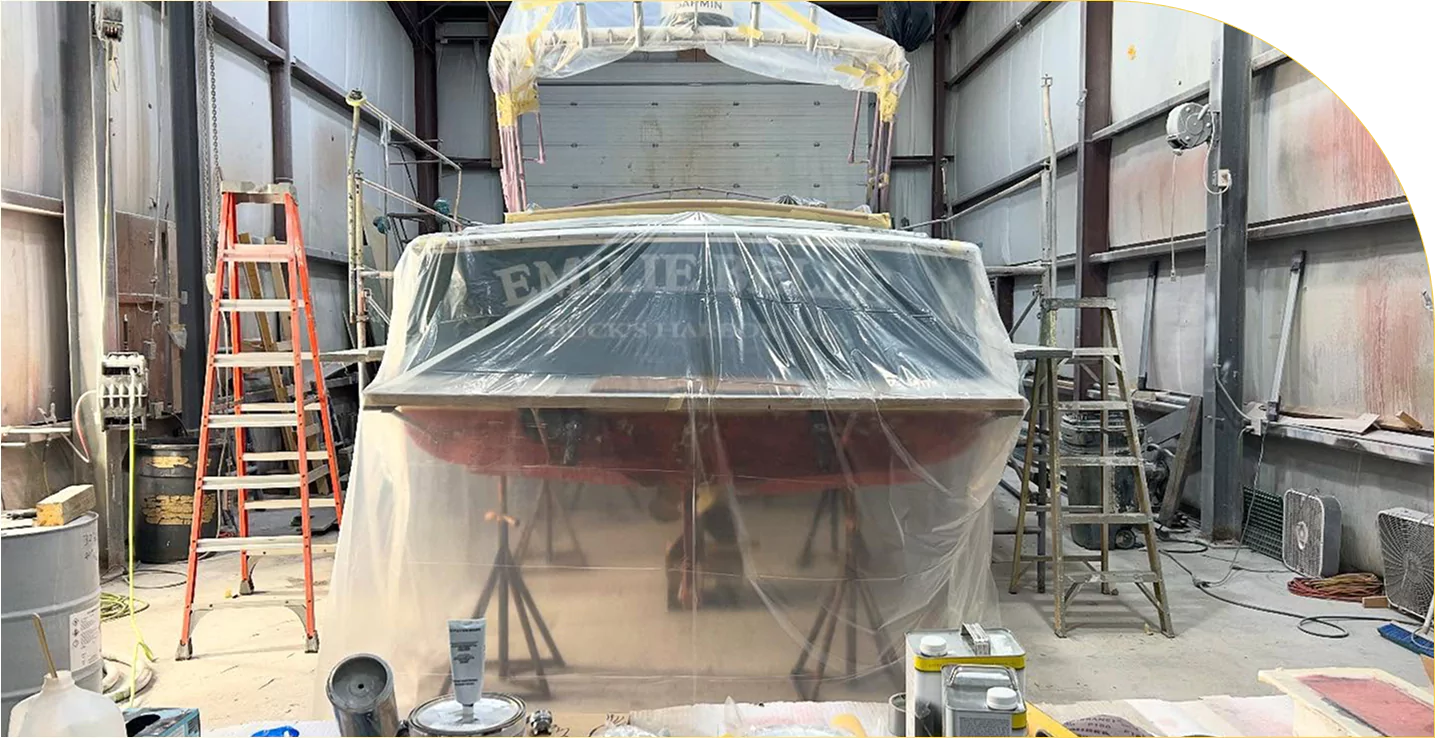
Irrespective of what your houseboat is made of or where it’s located, polyurea roof coatings can address the most common sources of damage and degradation. They’re spray applied using high-pressure spray equipment to form a seamless – literally, without seams – barrier that seals roofs watertight. They’re also waterproof, meaning as much rain can fall and as much water can splash up from below, and houseboat roofs remain insulated from water infiltration and corrosion. Beyond marine protection, polyurea coatings are UV resistant and can absorb UV rays and the heat that often comes with it without cracking or peeling and, more importantly, without affecting the underlying roofing materials. Factor in the reinforcement from polyurea’s mechanical strengths, broad-scope resistivity against everything from acid rain to motor oil, and safe and sustainable profile, and polyurea comes out on top (pun intended) for almost any houseboat roofing system.
OLD VESSEL, NEW
PROTECTION
If you have an old houseboat in desperate need of roof repair, it can be tempting, albeit painful, to fork over the time and money to build your roof anew. Sometimes this may be your only option, but most frequently, a high-quality repair is all you need to make your roof as good as new. For old boats where original parts are worth their weight in gold, at least to their beloved owners, opting for a high-performance repair solution like polyurea protective coatings can leave your houseboat largely unchanged but revitalized in both form and function. Moreover, polyurea coatings are also one of the fastest and most effective ways of repairing your houseboat’s roof, so there’s no compromise of time or performance for a final result that’s every bit as effective as full roof replacement.
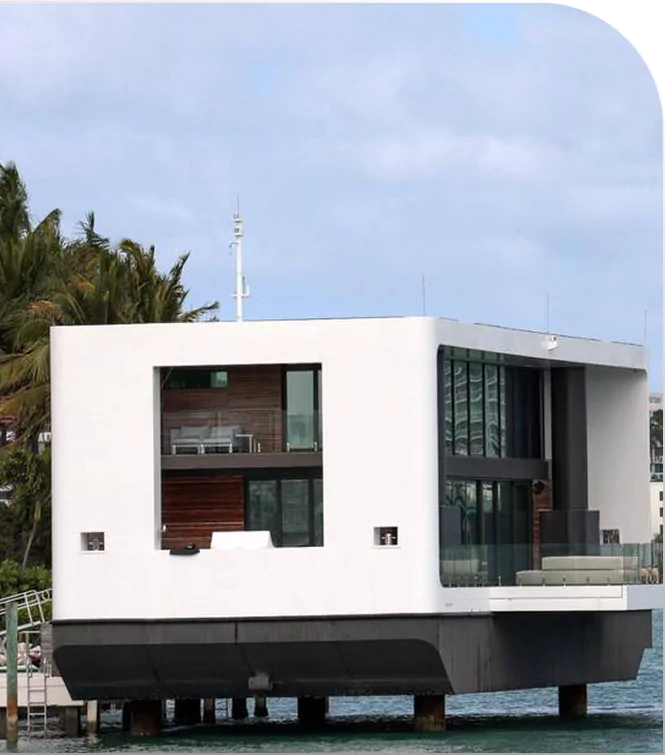
A SAFER MAIDEN VOYAGE
There’s something special about an old boat with years of history out on the water, but new houseboats remain a popular choice for first-time owners. The thinking often goes something like this: a new houseboat costs more, but will save big on time and frustration since it’s yet to suffer the wear of functioning as a dual vehicle-shelter. This leads many new houseboat owners to think that all there’s to be done after purchase is to grab a fishing rod, stock the fridge with your drink of choice, and begin creating years of memories with friends and family. Strictly speaking, this is true, but a little more trouble and only a modest expense can see your roof protected by polyurea coatings from the start. Your future self will thank you, and so will your houseboat because you’ll have decades of all-purpose protection to keep you and your roof safe and dry come hell or high water.
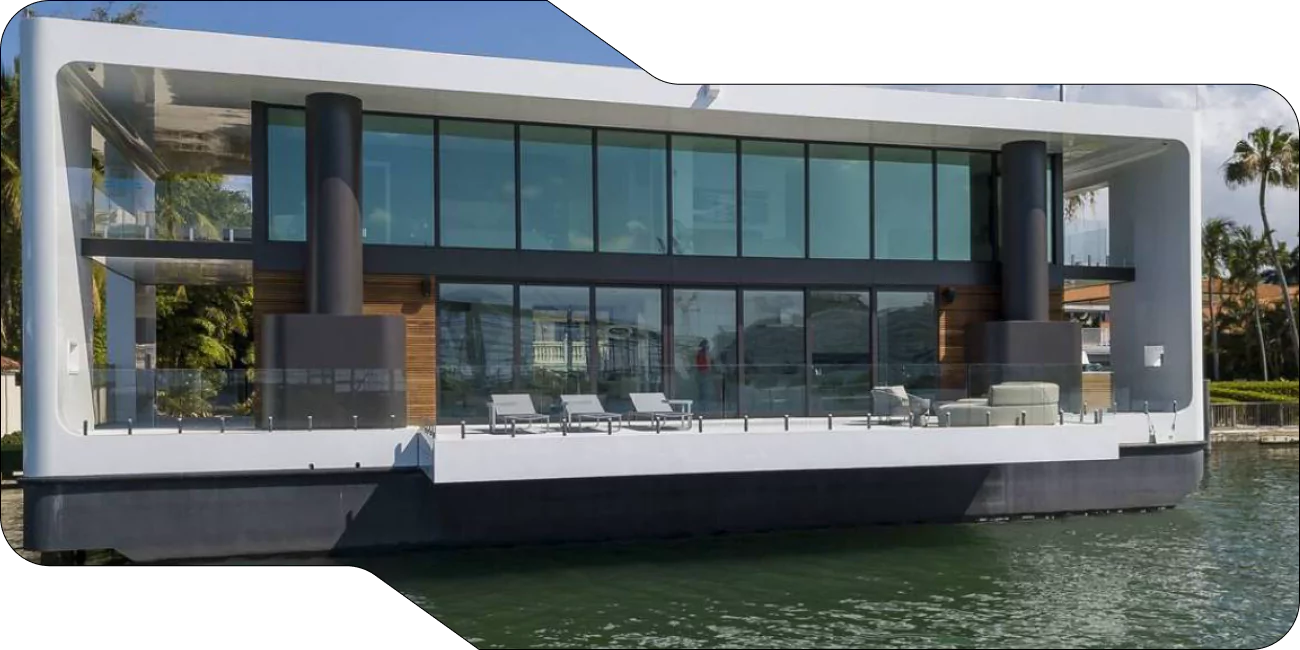
latest news & bLOGS
FREQUENTLY ASKED QUESTIONS
After curing, polyurea is a safe material, so much so that it can even be used for storing potable water. However, during its application polyurea’s precursors can be very dangerous, and a quality application requires professional expertise. It’s thus better to defer the application of polyurea houseboat coatings to certified professionals with all of the tools and training to stay safe and ensure a high-quality coatings system.
Polyurea strongly adheres to a variety of substrate materials including common metals used in houseboat roofing like steel and aluminum. In fact, metals are among the most common types of surface materials protected by polyurea spray elastomer coatings, and have proven their efficacy and longevity across application areas.
Houseboat roofs can be every bit as difficult to protect and preserve as the hull, deck, or captain’s chambers and stand to benefit greatly from additional layers of protection. Polyurea can be used on almost any surface, in almost any environment, to create a uniform membrane that seals and waterproofs houseboat roofs while also protecting against UV degradation, storm damage, and much more.
PARTNER WITH ARMORTHANE FOR MORE
DAYS OUT ON THE WATER
PARTNER WITH ARMORTHANE
FOR MORE DAYS OUT ON THE
WATER
Owning a houseboat is a major decision, and one that requires a years-long commitment to protect and preserve, or else your bank account and precious leisure time suffer. If you own an older vessel, don’t put off those repairs any longer, and for new houseboat owners, proactive protection now will have you thanking yourself for years and years to come. For any houseboat, anywhere in the world, you can count on ArmorThane’s polyurea coatings to be your ultimate 2-in-1 repair and protection solution. Our technology has been used in marine applications for decades, not least for houseboat roofs, and is trusted worldwide to keep our customers and their loved ones safe and dry. So if you own a houseboat and want to learn more about our polyurea coatings for roof repair and protection, contact us today, and we’ll be ready to help with anything you need!
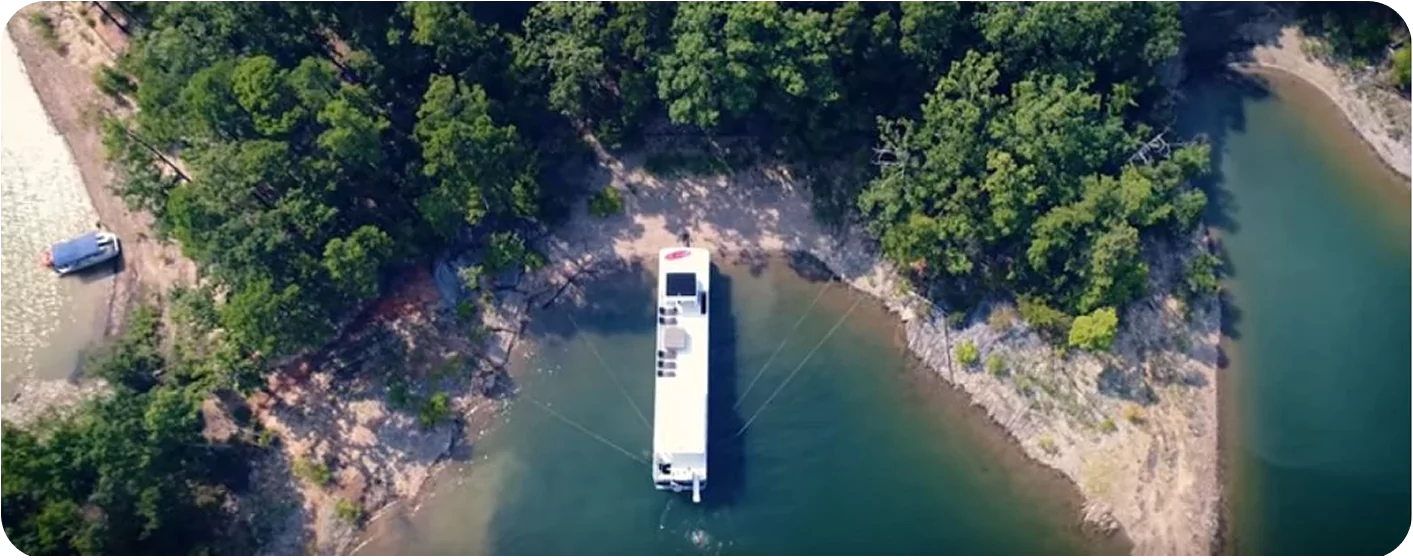
CONTACT US
REQUEST A QUOTE OR
BECOME AN APPLICATOR
ArmorThane has built a strong reputation over the past 30 years for producing high-quality, durable protective coatings.

Phone Number
Tel: 417.831.5090

Email Us
moreinfo@armorthane.com

ABOUT THE AUTHOR
TYLER GLECKLER
I am a chemist with a specialization in nanotechnology and applied materials chemistry. My work has focused on the characterization of optoelectronic materials, namely including semiconductor nanocrystals.
